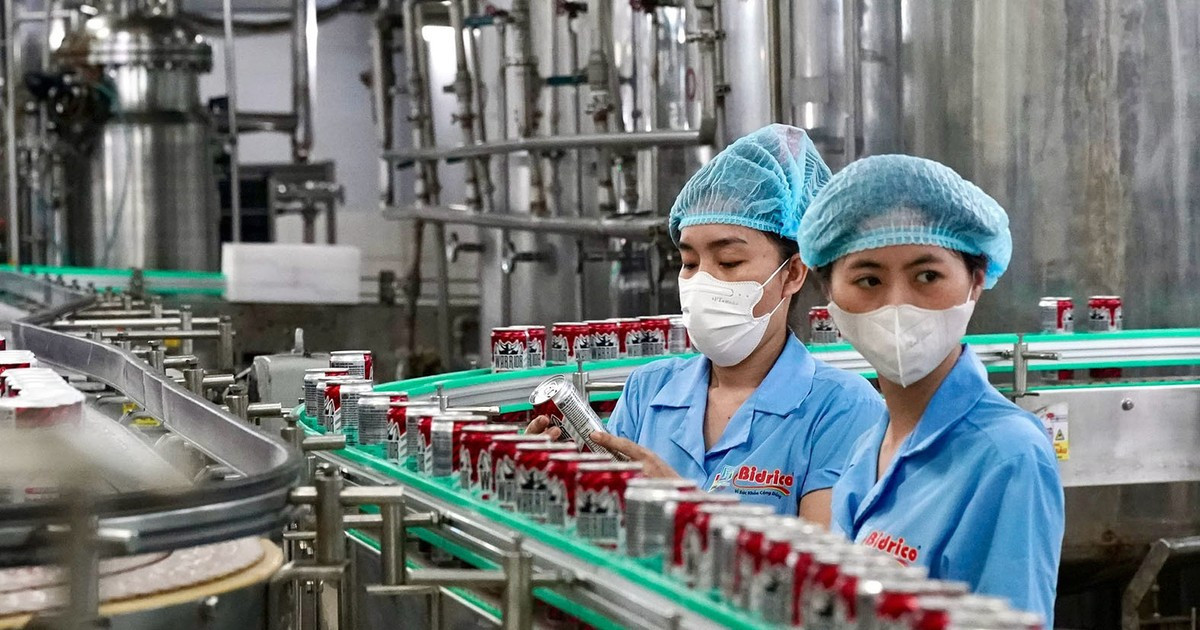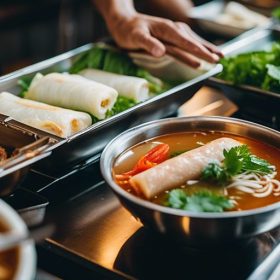Vietnam’s food industry has experienced significant growth in recent years, with the country becoming a major exporter of agricultural products. The food industry plays a crucial role in Vietnam’s economy, contributing to job creation and export revenues. However, with this growth comes the need for robust food safety regulations to ensure the quality and safety of food products.
Food safety regulations are of utmost importance in Vietnam to protect public health and ensure consumer confidence in food products. The consumption of unsafe food can lead to various health risks, including foodborne illnesses, which can have severe consequences for individuals and communities. Therefore, it is essential for Vietnam to have comprehensive and effective food safety regulations in place.
Understanding the Importance of Food Safety in Vietnam
Unsafe food poses significant health risks to consumers. Foodborne illnesses can result from the consumption of contaminated or improperly handled food, leading to symptoms such as nausea, vomiting, diarrhea, and even death in severe cases. These illnesses not only cause suffering for individuals but also put a strain on healthcare systems and can result in economic losses due to medical expenses and lost productivity.
In addition to the health risks, foodborne illnesses also have an economic impact on Vietnam. When outbreaks occur, consumer confidence in food products can be severely affected, leading to a decline in sales and exports. This can have long-term consequences for the food industry and the overall economy of the country.
Consumer confidence is crucial for the success of the food industry. When consumers trust that the food they consume is safe and of high quality, they are more likely to make purchases and support local businesses. On the other hand, if consumers have concerns about the safety of food products, they may choose to avoid certain brands or even switch to imported products. Therefore, ensuring food safety is not only a matter of public health but also a key factor in maintaining consumer confidence and supporting the growth of the food industry in Vietnam.
The Role of the Government in Ensuring Food Safety
The government plays a crucial role in ensuring food safety in Vietnam. Government agencies are responsible for developing and implementing food safety regulations, as well as monitoring and enforcing compliance with these regulations. The government also collaborates with industry stakeholders to address food safety issues and promote best practices.
Government agencies responsible for food safety include the Ministry of Health, the Ministry of Agriculture and Rural Development, and the Ministry of Industry and Trade. These agencies have specific responsibilities related to food safety, such as setting standards, conducting inspections, and issuing licenses and certifications.
Collaboration between the government and industry stakeholders is essential for effective food safety regulation. The government works closely with food producers, processors, distributors, and retailers to ensure compliance with regulations and promote best practices. This collaboration includes providing guidance and training to industry stakeholders, conducting joint inspections, and sharing information on emerging risks and best practices.
Enforcement of food safety regulations is another critical role of the government. Inspections are conducted regularly to ensure compliance with regulations, and penalties are imposed on those found to be in violation. This enforcement helps deter non-compliance and ensures that food products on the market meet the required standards.
Overview of the Food Safety Laws and Regulations in Vietnam
Vietnam has a comprehensive legal framework governing food safety. The key laws and regulations include the Food Safety Law, the Law on Quality of Goods and Products, and various decrees and circulars issued by relevant ministries.
The Food Safety Law sets out the general principles and requirements for ensuring food safety in Vietnam. It covers various aspects of food safety, including production, processing, storage, transportation, labeling, advertising, and import-export activities. The law also establishes the responsibilities of government agencies, industry stakeholders, and consumers in ensuring food safety.
Regulatory bodies responsible for enforcing food safety laws include the National Food Safety Committee, the Department of Food Safety, and the Food Safety Administration. These bodies are responsible for setting standards, conducting inspections, and issuing licenses and certifications. They also collaborate with other government agencies and industry stakeholders to address food safety issues and promote best practices.
The Food Safety Standards and Criteria in Vietnam
Vietnam has developed its own food safety standards and criteria, which are based on international standards and best practices. These standards cover various aspects of food safety, including microbiological, chemical, and physical hazards.
The food safety standards in Vietnam are designed to protect public health and ensure the quality of food products. They set out the maximum allowable levels of contaminants, such as pesticides, heavy metals, and microbiological pathogens. They also establish requirements for good manufacturing practices, hygiene, labeling, and traceability.
In comparison with international standards, Vietnam’s food safety standards are generally aligned with international best practices. However, there may be some differences in specific requirements or allowable limits. This is because different countries may have different risk profiles or regulatory approaches. Nonetheless, Vietnam strives to harmonize its standards with international norms to facilitate trade and ensure the safety of imported and exported food products.
The Food Safety Inspection and Monitoring System in Vietnam
Vietnam has established a comprehensive food safety inspection and monitoring system to ensure compliance with regulations. This system involves regular inspections of food establishments, including farms, processing facilities, restaurants, and retail outlets.
Food safety inspections are conducted by trained inspectors who assess compliance with regulations and identify any potential risks or violations. Inspections may include checks on hygiene practices, storage conditions, labeling accuracy, and documentation of food safety management systems.
The food safety inspection system in Vietnam faces several challenges. One challenge is the sheer number of food establishments that need to be inspected. With the growth of the food industry, there has been an increase in the number of farms, processing facilities, and retail outlets that need to be monitored. This puts a strain on the resources and capacity of the inspection system.
Another challenge is the lack of qualified inspectors. Inspectors need to have a deep understanding of food safety regulations and best practices, as well as the ability to identify potential risks and violations. However, there is a shortage of trained inspectors in Vietnam, which can affect the effectiveness of the inspection system.
The Challenges Faced by the Food Safety Regulators in Vietnam
Food safety regulators in Vietnam face several challenges in ensuring the safety of food products. One of the main challenges is limited resources and capacity. The government agencies responsible for food safety often have limited budgets and staff, which can make it difficult to carry out inspections, enforce regulations, and provide guidance and training to industry stakeholders.
Another challenge is the lack of public awareness and education on food safety. Many consumers in Vietnam may not be aware of the risks associated with unsafe food or may not know how to identify safe food products. This lack of awareness can make it challenging for regulators to enforce regulations effectively and for consumers to make informed choices.
Corruption and lack of enforcement are also significant challenges in ensuring food safety in Vietnam. Despite the existence of regulations and penalties for non-compliance, there have been cases of corruption and lax enforcement. This undermines the effectiveness of food safety regulations and erodes consumer confidence in the system.
The Impact of Food Safety Regulations on the Food Industry in Vietnam
Food safety regulations have both costs and benefits for businesses in Vietnam. Compliance with regulations can be costly for businesses, as they may need to invest in equipment, training, and documentation systems to meet the required standards. These compliance costs can be particularly burdensome for small and medium-sized enterprises (SMEs) that may have limited resources.
However, food safety regulations also bring significant benefits to businesses. By ensuring the quality and safety of their products, businesses can build trust with consumers and differentiate themselves from competitors. This can lead to increased sales and customer loyalty, as consumers are more likely to choose products that they perceive as safe and of high quality.
Moreover, compliance with food safety regulations can enhance the competitiveness of Vietnamese food products in global markets. Many countries have strict food safety requirements for imported products, and compliance with these requirements is essential for accessing international markets. By meeting these requirements, Vietnamese food producers can expand their export opportunities and contribute to the growth of the country’s economy.
Ensuring Consumer Awareness and Education on Food Safety
Consumer education and awareness are crucial for ensuring food safety in Vietnam. Consumers need to be aware of the risks associated with unsafe food and know how to make informed choices when purchasing food products.
One strategy for improving consumer awareness is through public campaigns and educational programs. These campaigns can raise awareness about the importance of food safety, provide information on how to identify safe food products, and promote best practices for handling and preparing food at home.
Another strategy is to improve labeling and information on food products. Clear and accurate labeling can help consumers make informed choices by providing information on ingredients, allergens, nutritional content, and production methods. The government can also require businesses to display food safety certifications or ratings on their products to help consumers identify safe options.
Future of Food Safety Regulations in Vietnam
The future of food safety regulations in Vietnam holds great potential for further improvements. As the country continues to develop its food industry and expand its export markets, there will be a need for more robust regulations to ensure the safety of food products.
Technology will play a significant role in improving food safety in Vietnam. Advances in technology, such as blockchain and traceability systems, can enhance transparency and accountability in the food supply chain. These technologies can help track the movement of food products from farm to fork, making it easier to identify potential risks or sources of contamination.
Furthermore, there is an opportunity for Vietnam to become a leader in food safety in the region. By strengthening its regulatory framework, improving enforcement, and promoting best practices, Vietnam can position itself as a trusted supplier of safe and high-quality food products. This can not only benefit the country’s economy but also contribute to the overall health and well-being of its population.
The Way Forward for Vietnam’s Food Safety Regulations
In conclusion, food safety regulations are of utmost importance in Vietnam to protect public health, ensure consumer confidence, and support the growth of the food industry. The government plays a crucial role in developing and enforcing these regulations, collaborating with industry stakeholders, and ensuring compliance.
Despite the challenges faced by food safety regulators in Vietnam, there is potential for further improvements in the future. By addressing issues such as limited resources, lack of public awareness, and corruption, Vietnam can strengthen its food safety system and become a leader in the region.
Collaboration between the government, industry, and consumers is essential for the success of food safety regulations. Continued efforts to improve consumer awareness and education, as well as the adoption of technology, can further enhance food safety in Vietnam.
Overall, ensuring food safety is a collective responsibility that requires the commitment and cooperation of all stakeholders. With concerted efforts, Vietnam can build a robust food safety system that protects public health, supports economic growth, and enhances consumer confidence in its food products.

Cuong Nguyen is a talented writer and experienced waitress at Vietnampalace.net, a renowned Vietnamese restaurant that offers an extensive menu of authentic Vietnamese cuisine. With a background in the competition of Vietnamese cuisine, Cuong brings a wealth of knowledge and expertise to the dining experience. From delicious pho dishes to fresh spring rolls, Cuong ensures that every meal is made with the freshest ingredients and authentic flavors.With exceptional service and a friendly atmosphere, Cuong takes pride in providing a memorable dining experience for every customer.
Whether you’re a vegetarian looking for options or a meat lover craving the flavors of traditional Vietnamese dishes, Cuong guarantees a delightful culinary adventure. So, visit Vietnampalace.net and let Cuong guide you through the tantalizing world of Vietnamese cuisine.



